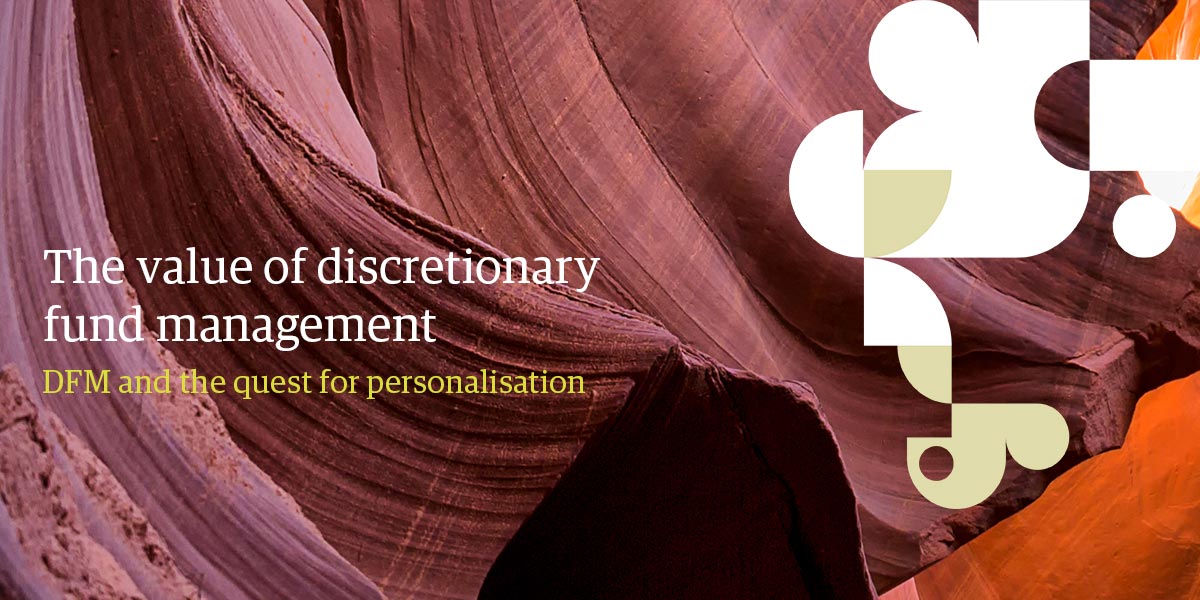One of the main barriers facing discretionary fund managers (DFMs) is the perception that too few offer the level of personalisation needed to warrant an extra layer of cost.

DFM and the quest for personalisation
It is fair criticism. There are versions of discretionary fund management that don’t offer the full range of services needed to meet the demands of advised clients, and it is with these firms that the trade-off between value and cost can often miss the mark.
A personalised investment approach is one of the key attractions of DFM to an adviser. However, more than half (58%) surveyed in the recent Rathbones value of DFM report said a lack of personalisation was a barrier to them taking up these services.
It’s clear that costs play a part. According to the value of DFM report, the vast majority (80%) would only consider a fully individual DFM portfolio with stocks and shares as a ‘bespoke’ offering.
Only one in five thought a managed portfolio service offered the expected level of personalisation, and only 15% of advisers felt a multi-asset fund or model portfolio could be considered ‘personalised’.
Clearly, a personalised investment management offering means different things to different people, but it is the only reason to outsource to a DFM in the first place. Even a managed or model portfolio benefits from the expertise of a DFM with the time and resource to dedicate to it, and can often prove to be the first rung of a ladder for clients who may one day upgrade to a more bespoke service.
DFM should offer clear personalisation, with a range of services to suit the needs of different clients from model portfolios up to individualised, bespoke services. And it is vital that advisers do the ground work to ensure that is the service they are really getting.
It’s a bit like buying a car. There is the basic model, which you can upgrade and personalise depending on what you want or need, adding to the value you get from it. Any reputable DFM provider should offer a full range of DFM services, and the progression many clients need – from multi-asset and model portfolios to managed portfolio service and bespoke offerings.
Just under a third (30%) of advisers cited the level of personalisation on offer from a DFM as one of the primary factors they considered in the decision-making process, so due diligence is vital.
Choosing the right one can help. The Rathbones’ survey found 66% of advisers that had adopted a DFM service thought they had improved the risk/return profile for clients, while 72% believed the DFM had demonstrated value for money by improving investment performance.
What is important is not to view taking on an investment management service as offloading clients to an external source, or ‘outsourcing’. Rather, see it as ‘insourcing’ an external specialist to work closely with advisers.
Do your clients need the services of a DFM? If the range of services or the value they add are not clear, then maybe think twice before signing on the dotted line.
Download the first chapter of our DFM research report - The value of discretionary fund management.

